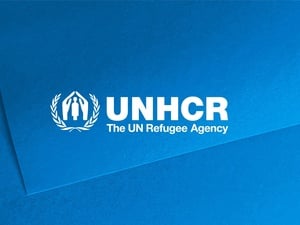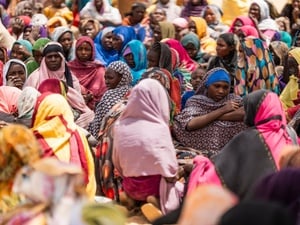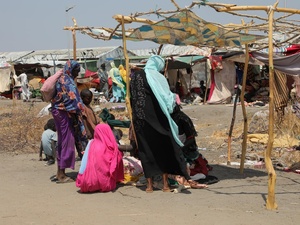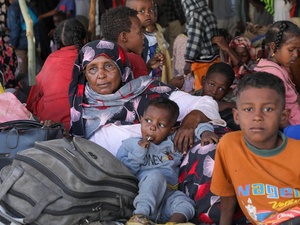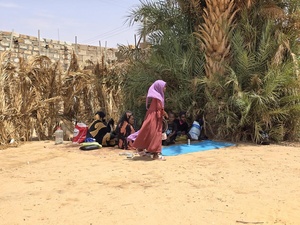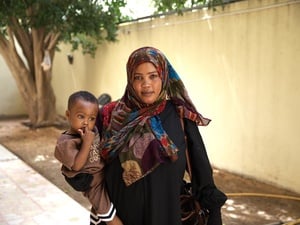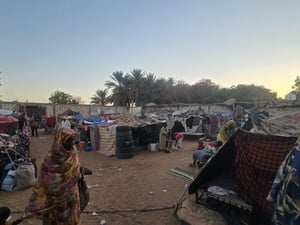UNHCR works to ease dire conditions in Libya's immigration detention centres
UNHCR works to ease dire conditions in Libya's immigration detention centres
In Libya, UNHCR and its partners have been assisting some of the 1,242 people rescued at sea from unseaworthy boats or intercepted by the Libyan Coast Guard in waters near Tripoli over the past 10 days, who have mostly been sent to immigration detention centres.
This includes a group of more than 200 people from the Horn of Africa intercepted at Tajura (16 km east of Tripoli) four of whom had serious burn injuries from a gas explosion two weeks ago at an unknown location where they were held by smugglers before boarding a boat bound for Europe. The group was taken to an immigration detention centre in Tripoli where medical staff from UNHCR's partner on the ground treated burns and arranged the transfer to hospital of four seriously injured people. This included a 20-year-old mother with extensive burns to her arms and legs and her two-year-old son with extensive burns to his face.
UNHCR is aware of at least 2,663 migrants or asylum-seekers (including women and children) spread across eight immigration detention facilities across Libya run by the Department for Combatting Illegal Migration (DCIM) - a significant increase from the 1,455 people in detention a month ago. The main nationalities in the centres are Somalis, Eritreans, Ethiopians and Sudanese as well as people from various West African countries. UNHCR understands that 15 immigration centres are now operational across the country. Foreigners in Libya can be arrested for lack of lawful immigration status and can spend anything from one week to 12 months in detention. UNHCR can generally organize the release of refugees and asylum-seekers registered with our office within a few days, although our capacity to register new arrivals to Libya is limited in the current security environment. We also advocate for the release of very vulnerable people, like pregnant women and also for alternatives to detention, if possible.
Our local staff and partners who visit immigration detention centres say conditions are poor, with urgent needs for more medical help, improved ventilation and sanitation as well as relief items. With the rate of detention on the rise, overcrowding compounds already tough conditions. In some centres, more than 50 people are crowded into rooms designed for 25. Temperatures are on the rise, as are the mosquitos which combined with poor ventilation could spread disease. At the request of local authorities, UNHCR is helping to ease the dire conditions. We are giving out soap, underwear, clothes and other items to detainees in the eight centres we can currently access.
There are some 36,000 refugees and asylum-seekers registered with UNHCR in Libya (though some of these may have moved on), who are affected by the growing violence and lawlessness in the country. Among these, the largest group (18,000) are Syrians while Palestinians, Eritreans, Iraqis, Somalis, Sudanese make up significant groups. Despite the volatile situation in Libya, UNHCR continues to help refugees and asylum-seekers through our national staff and NGO partners. We run two community development centres in Tripoli and Benghazi and have also expanded outreach this year through a mobile medical and social team in Tripoli. We also run dedicated hotlines to help people get registered, receive cash assistance, renew documents, or who are in detention. We are setting up another hotline with the Libyan Coast Guard to receive search and rescue updates.
Meanwhile, UNHCR continues to deliver aid like mattresses, blankets, clothing and kitchen utensils to thousands of internally displaced Libyans, and is supporting municipal authorities to track displacement and assess needs. Some 400,000 Libyans have been displaced by various waves of violence, according to UN figures.
For more information on this topic, please contact:
- In Tunis (covering Libya), Marwa Baitelmal on +216 228 344 31
- In Geneva, Ariane Rummery on +41 79 200 76 17


